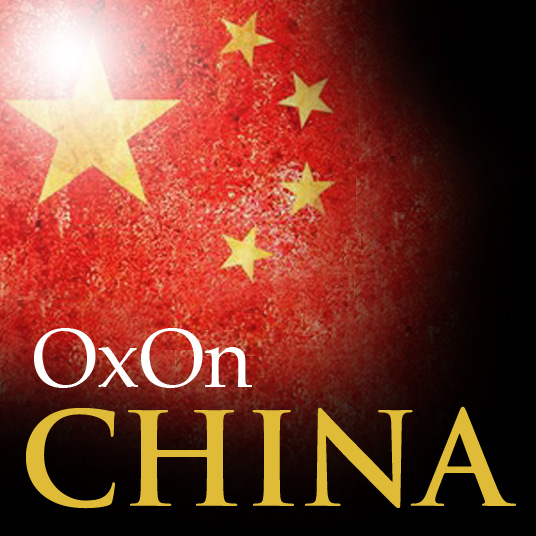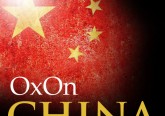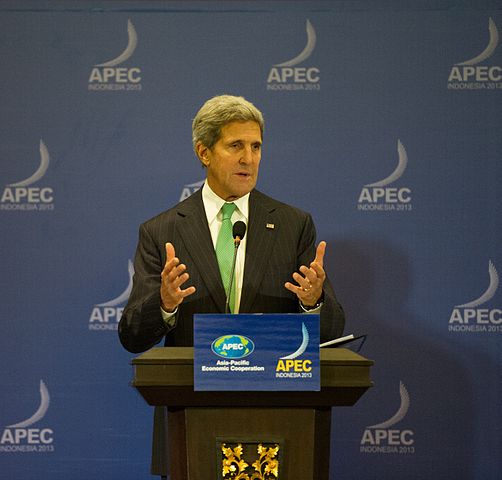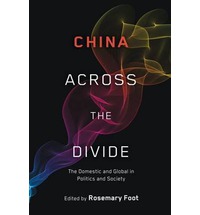 Chinese state-owned enterprises of the 1980s reigned infamous for their inefficiency, poor quality and total dearth of customer service. There was simply too much politics and not enough emphasis on actually making products. Meanwhile, smaller, privately-managed corporations which filled in market gaps left by the state, were prone to fraud, exploitation, instability and short-term attitudes. They tended to collapse very quickly; overnight the boss might get arrested or leave with all the company’s money.
Chinese state-owned enterprises of the 1980s reigned infamous for their inefficiency, poor quality and total dearth of customer service. There was simply too much politics and not enough emphasis on actually making products. Meanwhile, smaller, privately-managed corporations which filled in market gaps left by the state, were prone to fraud, exploitation, instability and short-term attitudes. They tended to collapse very quickly; overnight the boss might get arrested or leave with all the company’s money.
Smashing Fridges
But some of these firms looked to the West and to Japan for inspired ideas to kick-start their ailing businesses. Among them was Zhang Ruimin, CEO of Haier Group, which started out as a struggling collectively-owned fridge manufacturer. As company legend goes, in 1984 Zhang checked one batch of Haier’s products and found 76 fridges to be defective. Rather than follow the usual practice of passing them on to second hand stores or employees, Zhang lined up all the defective fridges, took a sledgehammer and, with the help of Haier employees, smashed them to pieces to show that the company would not tolerate poor quality. He then introduced a rigorous quality control system to build a new “cultural mindset” of quality in his employees.
Haier also focused on the cultural value of putting customers first, or attaining “zero distance from customers.” Employees were rewarded for innovating new products to satisfy customers’ needs. When rural Chinese complained that their washing machines kept breaking down, a further inquiry revealed the cause: instead of washing clothes, the villagers were using their washing machines to clean sweet potatoes and yams. Rather than tell their customers not to do this, Haier’s employees designed a new washing machine that could clean both clothes and sweet potatoes (though not at the same time).
Now one of China’s leading brands, Haier is just one example of China’s enthusiastic uptake of Western corporate culture ideals over the last thirty years.
Pillow Talk
Huawei Technologies CEO Ren Zhengfei also saw the pressing need for change, though his vision was a product of a distinctly corporate culture “with Chinese characteristics.” Huawei is an employee-owned firm, and until recently could not rely on Chinese government subsidies to support its development. As Ren put it back in 1998: “Resources are limited; only culture renews itself unceasingly…Huawei does not have natural resources that it can rely on, so it can only depend on the enormous ‘oil fields,’ ‘forests’ and ‘mines’ that are found inside peoples’ minds.” From the late 1990s, inspired by the Maoist practice of “self-criticism,” Ren instituted regular “democratic meetings” in which employees and managers were encouraged to publicly criticise their own performance and that of the company. To distance Huawei’s meetings from the still-fresh memories of humiliating public denunciations during the Cultural Revolution, Ren likened Huawei’s practice of self-criticism to “hitting yourself with a soft pillow: though the blows are gentle, they will remind you to constantly strive for better performance.” Ren’s aim was to attack the traditional Chinese fear of “losing face” in public, in order to improve the business performance of the firm. This was particularly crucial for a high-tech privately controlled firm, where failure to criticize poor products and management would risk the rapid collapse of the business.
Huawei’s cultural value of “self-criticism” has certainly led to impressive results. By 2008, Huawei Technologies ranked 5th on Fortune magazine’s list of the World’s Most Admired Companies in the network communications industry. It is currently among the top three internet technology suppliers in the world. Driven by employee innovation, the company has helped its employees to apply for over 19,000 patents.
Successful experiments with corporate culture such as Haier’s and Huawei’s began to attract the notice of the Chinese Government. Haier’s CEO Zhang Ruimin was called upon to apply his approach to turn around other lethargic state-owned enterprises, in a process dubbed “revitalising stunned fish.” And in 2005, new policies were introduced requiring all large Chinese corporations to develop corporate culture programs. Around 90% of large Chinese corporations, both state and privately controlled, now have corporate culture programs in place, and the Chinese government has recently approved a new national exam for “Corporate Culture Officers.”

What is corporate culture, and why is it so popular in China?
Corporate culture, the philosophy of imbuing employees with a set of higher company values that motivate them to work beyond the next pay cheque, was popular with US management in the 1980s, themselves inspired by the successful model of Japanese corporations. For Chinese policymakers, its appeal lies in its emphasis on “values” and “culture”; such abstractions can be “reinterpreted” to include both Western-style management techniques (quality control, customer service etc.) and Chinese socialist values (the business firm as a “greater family,” patriotic spirit etc.).
Chinese corporate culture is fostered through mission statements, choirs, talent shows and in-house magazines to which employees regularly contribute writing and artwork. Corporate universities encourage employees to take cultural and technical courses. And corporations reinforce the required cultural values by building financial and non-financial incentives into the remuneration process. Chinese firms’ in-house corporate magazines frequently feature vivid stories by and about “model employees” to encourage take-up of the firm’s values. Take “Late Carnations,” a short story about a young employee of China Datang Corporation, a large state-controlled power company, whose gruelling work ethic causes him to miss the final hours of both his parents. Laying carnations at the grave of his parents, he declares that he must put aside his grief and return to work immediately, as he cannot let his own personal problems get in the way of the corporation’s business: “The greater corporate family must come before my own small family,” he declares.
Transforming the Communist Party’s Role
Here we see a revival of the kind of propaganda that used to be promoted by the Chinese Communist Party in more socialist times. And interestingly, the Communist Party committees that still exist within all large Chinese business firms are now strongly involved in corporate culture promotion. It appears that the Communist Party needs to maintain its relevance within contemporary corporations, so it has transformed its role from a champion of workers’ ownership rights to a kind of corporate culture consultant, helping to motivate employees for the sake of corporate profits. At the same time, the Party also hopes to ensure that the “spiritual” needs of employees are satisfied too, hence the simultaneous focus on employee self-improvement through non-work cultural activities like choirs, calligraphy clubs, and creative writing groups. We see a new hybrid developing: in the eyes of the Party, the ideal large Chinese corporation is not simply a vehicle for profit maximization but a social and cultural hub for the betterment and self-realization of everyone who works there, and a socially responsible citizen in the wider community. Is this an inspired new definition of what a corporation should be or simply an illogical contradiction, impossible to put into practice?







No Comment